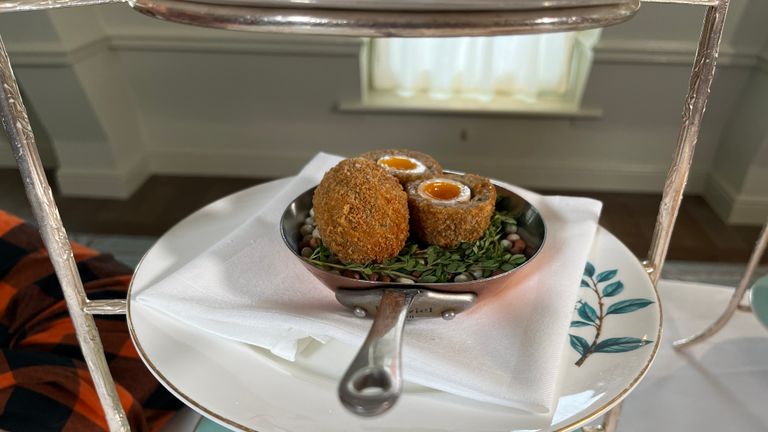Scientists in South Korea have grown beef cells inside grains of rice in a bid to create food that is cheaper and more eco-friendly than real cuts of meat.
“Imagine obtaining all the nutrients we need from cell-cultured protein rice,” said lead author Sohyeon Park from Yonsei University, South Korea.
“Rice already has a high nutrient level, but adding cells from livestock can further boost it.”
The product is not yet approved for consumers, but adds to a growing list of lab-grown meat and alternative proteins being developed in a bid to reduce the climate impact of meat and dairy.
They hope the nutrient-dense rice could provide “relief for famine, military ration, or even space food” – if it could be scaled up and if consumers are willing to try it.
Read more:
I’m a bad vegetarian who sometimes breaks the rules. Could lab-grown steak be the answer?
A vegan cheese that tastes like the real thing? Lab project working on just that
Tasting the world’s first lab-grown scotch egg
The team chose rice as the “host” because its porous structure mimics the three-dimensional environment in animals that cells need to grow.
The grains were coated with fish gelatin to help the meat cells latch on.
The scientists then added cow muscle and fat cells and left it all to culture in a petri dish for 9 to 11 days, before harvesting the final product as a “cell-cultured beef rice”.
The meaty rice contains 8% more protein and 7% more fat than regular rice, found the paper, published on Wednesday in peer-reviewed journal Matter.
It claims the “main ingredients” in the product “meet food safety requirements and have a low risk of triggering food allergies”.
Many alternative proteins remain extremely expensive to produce, but the Korean team believe their meaty rice would cost around £1.77 ($2.23) per kg, while beef is six times more expensive at £11.85 ($14.88).
They also estimate it would release almost eight times less greenhouse gases that heat the climate, creating 7kg of carbon dioxide per 100g of protein produced, compared with 50kg from beef.
Neil Ward, an agri-food and climate specialist and professor at the University of East Anglia, who was not involved with the study, said: “This line of research holds promise for the development of healthier and more climate-friendly diets in future.”
But the “critical test” will be “public appetite for these sorts of lab-developed foods”, he said.
“With lab-based alternative meats in general, the greatest potential is probably in replacing processed meats rather than prime cuts,” he added.
Watch The Climate Show with Tom Heap on Saturday and Sunday at 3:30pm and 7.30pm on Sky News, on the Sky News website and app, and on YouTube and X.
The show investigates how global warming is impacting people and the natural world, and highlights the solutions driving the transition away from fossil fuels.











![Business tycoon in Novrongo to bury late father in a car [Video]](https://ghananewss.com/storage/2023/05/business-tycoon-100x75.jpeg)








